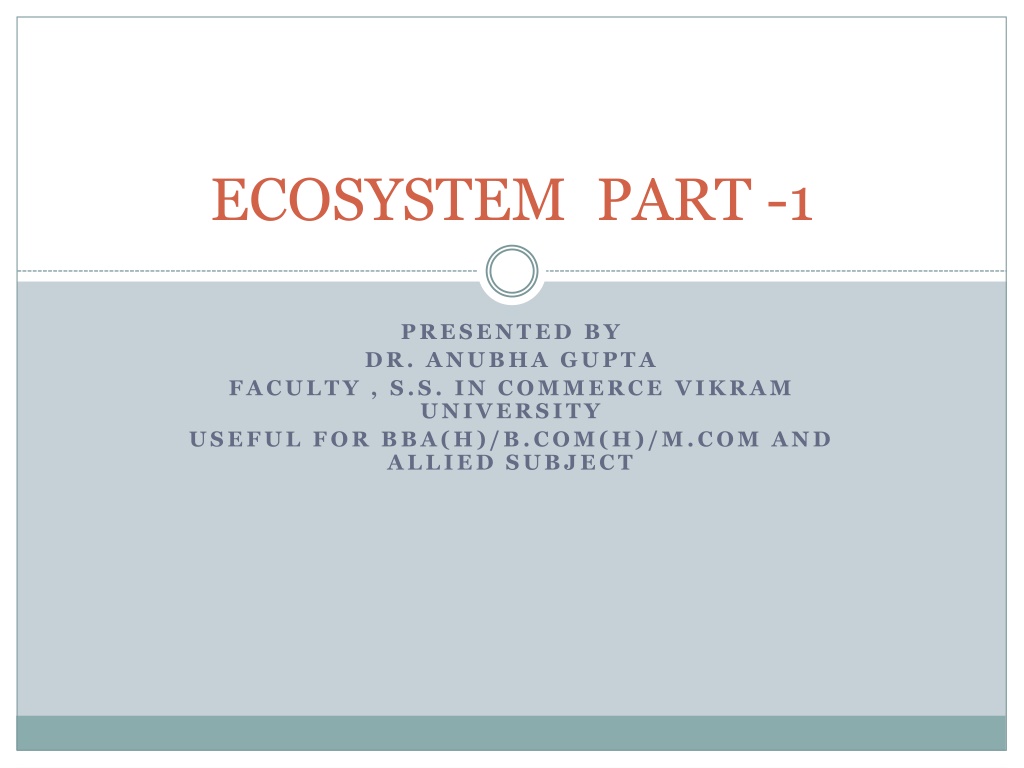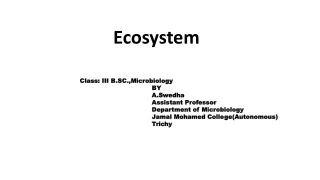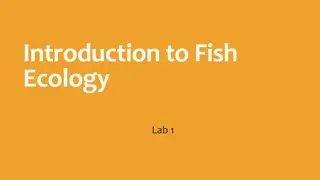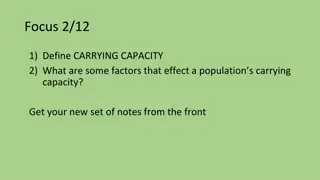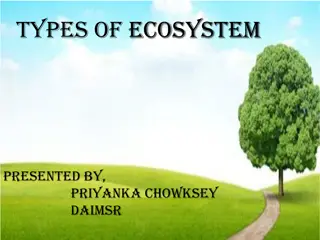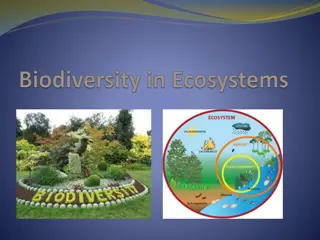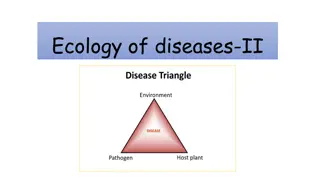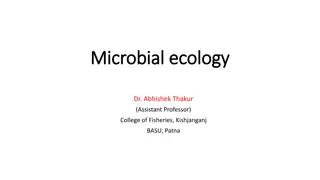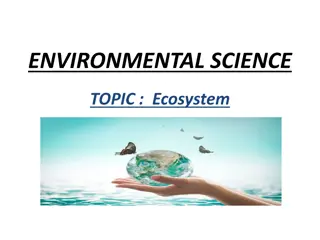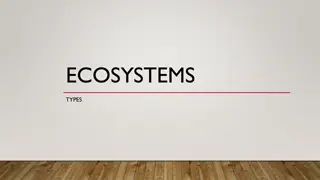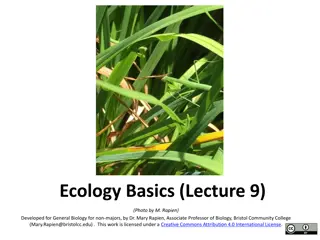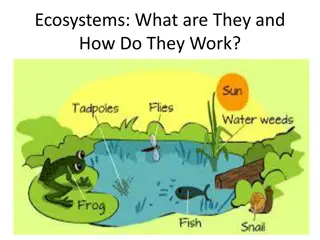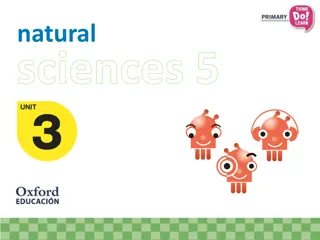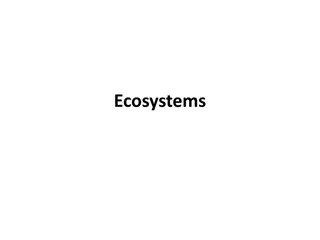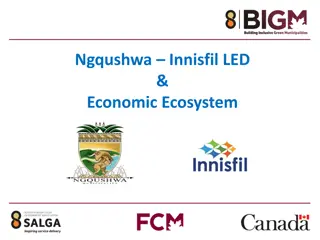Understanding Ecosystems: Components and Interactions
An ecosystem, as explained by Dr. Anubha Gupta from Vikram University, is a community of living organisms and their nonliving environment components working together. The ecosystem comprises biotic and abiotic elements, with producers, consumers, and decomposers playing vital roles in maintaining balance. Biotic components include producers converting inorganic matter into food, primary consumers feeding on producers, secondary consumers preying on primary consumers, and tertiary consumers hunting large carnivores. Decomposers break down dead plants and animals into simpler substances. Understanding these components and interactions is essential for students pursuing BBA, B.Com, or M.Com studies.
Download Presentation

Please find below an Image/Link to download the presentation.
The content on the website is provided AS IS for your information and personal use only. It may not be sold, licensed, or shared on other websites without obtaining consent from the author. Download presentation by click this link. If you encounter any issues during the download, it is possible that the publisher has removed the file from their server.
E N D
Presentation Transcript
ECOSYSTEM PART -1 PRESENTED BY DR. ANUBHA GUPTA FACULTY , S.S. IN COMMERCE VIKRAM UNIVERSITY USEFUL FOR BBA(H)/B.COM(H)/M.COM AND ALLIED SUBJECT
CONCEPT An ecosystem is a community of living organisms in conjunction with the nonliving components of their environment, interacting as a system. The living and non-living components of an ecosystem are known as biotic and abiotic components, respectively.
Structure Climatic Edaphic Abiotic Producer Consumer Decomposer Biotic
Abiotic A. Climate: Sunlight Water Air Rain Soil Wind speed etc.
Abiotic B. Edaphic: Soil Minerals Oxygen topography
BIOTIC A.PRODUCSER: Producers are organisms that create food from inorganic matter. The best examples of producers are plants, lichens and algae, which convert water, sunlight and carbon dioxide into carbohydrates.
BIOTIC B. Primary consumers ( herbivores) These are the animals that eat producers. They are usually herbivores and range in size from the smallest of insects, such as the leaf beetle to the largest land mammal, the elephant.
BIOTIC Secondary consumers (carnivores) These feeds on primary consumers for their energy .eg ., dogs ,snakes ,owls . The organisms which feed on both producers and consumers is also known secondar consumers(omnivores) eg. ,Human ,bears etc
BIOTIC Tertiary consumers ( large carnivores) These are carnivores that feeds only on secondary consumers.eg .,lion ,tiger ,eagle etc
BIOTIC C. Decomposers: Decomposers are the organisms that breaks down the cells of dead plants and animals into simpler substance.eg. certain kinds of bacteria, actinolite , worms, slugs etc.
Reference https://sciencing.com/role-producers-ecosystem- https://en.wikipedia.org/wiki https://www.quora.com
. THANK YOU
